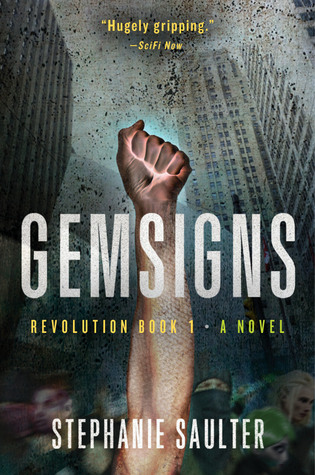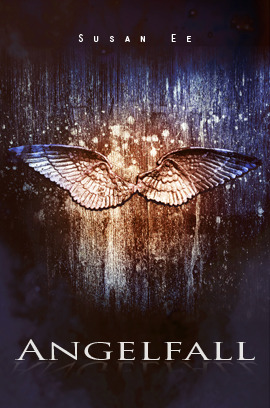Sarah Chorn's Blog, page 72
October 1, 2014
[Guest Post] Patrick Swenson on The Positives and Negatives of Negative Reviews
 About the Author
About the Author
Patrick started writing when he was in 2nd grade. His first classic was Mr Mooney Goes to the Moon. It was followed by Mr Mooney Goes to Mars and Mr Mooney Goes to North Dakota. True story. The manuscripts were lost when his family moved from one side of the state of Montana to the other. He has lived in Kalispell, Montana until graduating from high school.
Patrick attended Pacific Lutheran University in Tacoma, WA, and received his BA in Education. Some may know that originally he was a music teacher, and more specifically, a high school band director. Patrick was also teaching English and Language Arts classes to fill up my day, and eventually he made the switch to full-time English. He has only taught in Washington State: Three years at Lake Quinault School on the Olympic Peninsula, thirteen years at Evergreen High School in White Center, and, after receiving his Masters in Education in 2000, thirteen years at Auburn Riverside High School in Auburn, where he still works, teaching AP Literature, Creative Writing, Science Fiction, Honors 10 Lit, and Journalism. Patrick is the adviser for the school’s newspaper, InFlight, and also for the literary magazine, Smudges.
In 1986 he attended the Clarion West writers workshop, and sold stories a few years after. In 1995 he began Talebones magazine, and in 2000 started Fairwood Press, a small SF book press. Talebones ended in 2009 so he could devote more time to writing, and later that year he finished his first novel, The Ultra Thin Man. It sold to Tor in June 2012. He is currently working on the sequel.
Patrick has sold stories to the anthology Like Water for Quarks, and magazines such as Marion Zimmer Bradley’s Fantasy Magazine, Northwest Writers, Figment, and others. In 2007 he started the Rainforest Writers Village retreat, which is held every spring at the Rain Forest Resort Village at Lake Quinault, WA.
Patrick’s son Orion was born in 2002. He was diagnosed with Asperger’s Syndrome when he was in 1st grade. He loves reading and video games, his favorites being Little Big Planet 2, theMyst series and Minecraft. He’s in 7th grade, attending middle school in Auburn.
I’ve lived in Bonney Lake, WA since 2007.
You can learn more about him by visiting his website.
—
The Positives and Negatives of Negative Reviews
Negative reviews happen to every writer. Sometimes reviewers target the book, sometimes they target the writer. An infographic recently showed famous literary authors linked to negative reviews or statements they made about other famous literary authors. For example, Truman Capote writing about Jack Kerouac: “That’s not writing, it’s typing.”
I’m a debut author. The Ultra Thin Man has been out just over two weeks. Reviews—positive or negative—have the ability to truly influence readers who are thinking about buying it. And yet, negative reviews for my book are going to be far less numerous than reviews for books by well-known writers. Take George R.R. Martin, author of A Game of Thrones. He’ll receive more negative reviews in bulk than I’ll ever see for my debut novel. The thing is, though, that none of those bad reviews are going to adversely affect sales of his books. His fans are legion, and those fans will pick up the next book automatically with a Pavlovian furor, and pay very little attention to negative reviews. Or positive reviews, for that matter, because the same holds true there.
The first review I saw for The Ultra Thin Man was a starred Publishers Weekly review. I was stunned. Thrilled. Over the moon! Booklist did another positive review. I spotted excellent early Amazon and Goodreads reviews. As of today, however, I’ve come across a number of negative reviews. Those negative reviews stick more deeply. (Well, duh.) I can take the gloss off a particularly negative rant by posting or mentioning positive reviews that say almost the opposite. Unless a book is a total dog, a positive review stands in wait to counteract a negative one. I’ve already seen this polarizing phenomenon in the few short weeks my book’s been on the shelves.
Just a few nights ago, I had a discussion with a reader who absolutely loved what I’d done with my world, and she clicked off many specific examples. The next day, I had a reviewer screaming at me to take more time with my worldbuilding. I had another reviewer explain the positives of the noir tropes, and the femme fatale, and I read another comment on the strength of several of the female characters; on the other end of the spectrum, however, I read reviewers harp on the fact that it’s definitely not a feminist novel, and some reviewers dinged specific lines or scenes as too boyish, or even sexist.
Not that I’m ignoring all that.
See, one positive aspect of the negative review is that I’m a writer looking to improve and do better on the next book. I can always improve. A few lines and scenes mentioned negatively made me stand back and say, “Yeah, I see that there. That’s true. I definitely need to think more about this. Or that.” On the other hand, a reviewer can get that point across without snark.
Part of my job description at the school where I teach is advising the newspaper and running the beginning journalism class. I totally understand (and uphold) the idea of “fair comment,” a privilege under the First Amendment of the Constitution. If you write a book—if you produce an album, if you create a movie, or put on a concert—you’ve put yourself out there for fair comment. It is a form of qualified privilege on facts about matters that concern the community as a whole, and obviously this all has to happen without malicious harm. So a politician, a movie star, or an author can’t sue for defamation based on a published negative opinion. This isn’t true for a private person. The moment I said “yes” and signed the contract at Tor to have my book published, I became a public figure in the book publishing world.
Years ago, negative reviews were quite prevalent. There’s a rich history of the literary crowd taking on the “new book” and thrashing it, or accusing it (or the author) of mediocrity. There was a certain amount of respect given to a reviewer who had the critical clout to give a negative review. Audiences listened.
Today, in a world where the internet makes a critic of anyone with a computer or a smart phone, and the entire structure of book publishing is under scrutiny due to new technological marvels, it’s easy enough to applaud those things you absolutely love and flame those things you hate. It’s never been easier to make a fair, honest comment.
Perhaps, in the end, mediocre fiction slides by unnoticed. Word of mouth is the best publicity, and if it convinces readers to pick up and read books, that’s golden. Meanwhile, I can still take criticism—within reason—and improve my writing when it is not what it could be.
Now excuse me while I get back to typing—I mean, writing—my next book.
September 30, 2014
[Guest Post] Brian Staveley on Fractal Conflict in Storytelling
 About the Author
About the Author
After teaching literature, philosophy, history, and religion for more than a decide, Brian began writing epic fantasy. His first book, The Emperor’s Blades (released by Tor Books in January), is the start of his series, Chronicle of the Unhewn Throne. The first seven chapters can be had for free here. The second book in the trilogy, The Providence of Fire, is due out in January and available for preorder now.
Brian lives on a steep dirt road in the mountains of southern Vermont, where he divides his time between fathering, writing, husbanding, splitting wood, skiing, and adventuring, not necessarily in that order. He can be found on twitter, facebook as brianstaveley, and Google+ as Brian Staveley.
The second book in his Chronicle of the Unhewn Throne series, A Providence of Fire is set to be published in January of 2015!
To learn more about Brian, check out his website.
—
Nothing Should Ever Be Easy; Fractal Conflict in Storytelling
I used to do a stupid thing.
Actually, I still do stupid things, but I’ve managed to excise this particular stupid thing from my repertoire of habits. The thing is this: I used to give working titles to chapters of my books (which is not the stupid thing yet) that read like this: Adare Meets a Stranger. Valyn and the Huge Bird. Kaden Gets An Erection.
At first blush, there’s nothing wrong here. It’s ok to talk to strangers, erections are natural, etc. The problem with these titles is that they fail to capture to the meat of the chapter: the conflict. Worse yet, titles like Adare Meets a Stranger make it possible to write, or at least to begin writing, a really shitty chapter in which there isn’t any conflict. Such obvious disasters get edited out later, of course, but it’s a lot of work writing shitty chapters, and if there’s one thing I’m all about, over here in my windowless writing cave, it’s eliminating extra work.
The solution, fortunately, is one of those satisfying fixes that solves the problem without requiring any actual extra work: every working chapter title now involves the word “versus”. That’s it. A noun, versus, then another noun. If a chapter can’t be titled this way, I know that it’s doomed, and refuse to start writing it.
Just look what happens to the titles above:
Adare Versus the Stranger
Valyn Versus the Huge Bird
Kaden Versus his Erection
Better. Much better.
These conflicts don’t need to be conflicts between two people, or even between a person and his or her genitalia. We could have:
Lucinda Versus the Echidna
Jewel Versus the Kitchen Door
Matthew Versus his Insecurities
Sandra Bullock Versus Gravity
Jessica Versus that Fucking Machine They Now Make You Use at Passport Control
You don’t want to get too vague. Jessica Versus Technology or Jessica Versus the US Government don’t give much focus for a writer embarking on a new chapter. On the other hand, conflicts of that magnitude might be just dandy for a larger act or section of a novel.
Which raises another point: conflict is central at all levels of a work of fiction. A novel is like a fractal with conflict as the governing, recurring structure. We should be able to see the entire scope of the thing through the lens of conflict: These short dwarves here are fighting a war against those slightly taller dwarves over there. The same applies to each individual act: In this bit, the short dwarves are in conflict with the dragon, because they’re trying to steal his stilts. Or to any given chapter: Jobo Versus Jibi, two short dwarves arguing about how best to steal the stilts. And, like a good fractal, it drills deeper still. A paragraph that is simply description is a wasted paragraph. Instead of A Description of the Dragon’s Den, we’re better off with A Description of the Dragon’s Den That Makes Jobo Piss Himself and Want to Quit.
When I taught creative writing, students always wanted to write dialogue like this:
“What’s up?” Jimmy asked.
“Nuthin’,” Rebecca replied.
“Want to go to Starbucks later?”
“Sure.”
What’s missing, of course, even in this tiny exchange, is any hint of conflict. Let’s tweak it:
“What’s up with your hair?” Jimmy asked.
“Nothing,” Rebecca snapped. “What’s up with your face?”
“Want to burn down a Starbucks later?”
“You dick, you know my dad’s the manager there.”
Now that I’ve started, I actually kind of want to write that story. Teen corporate arson, however, is a little outside my genre, and there’s the conclusion to this epic fantasy trilogy that needs finishing. I title this chapter of my life: Author Versus his Rapidly Diminishing Attention Span. A dispiriting title, yes, but better than Author Versus His Erection.
September 29, 2014
Bitter Greens – Kate Forsyth + GIVEAWAY
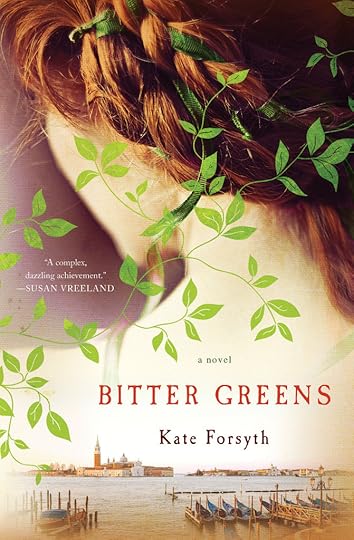
(Scroll to the end to see the GIVEAWAY details!)
Publication Date: September 23, 2014 | Thomas Dunne Books | Hardcover; 496p | ISBN-10: 1250047536
Genre: Historical/Fantasy/Fairy-Tale Retellings

The amazing power and truth of the Rapunzel fairy tale comes alive for the first time in this breathtaking tale of desire, black magic and the redemptive power of love
French novelist Charlotte-Rose de la Force has been banished from the court of Versailles by the Sun King, Louis XIV, after a series of scandalous love affairs. At the convent, she is comforted by an old nun, Sœur Seraphina, who tells her the tale of a young girl who, a hundred years earlier, is sold by her parents for a handful of bitter greens…
After Margherita’s father steals parsley from the walled garden of the courtesan Selena Leonelli, he is threatened with having both hands cut off, unless he and his wife relinquish their precious little girl. Selena is the famous red-haired muse of the artist Tiziano, first painted by him in 1512 and still inspiring him at the time of his death. She is at the center of Renaissance life in Venice, a world of beauty and danger, seduction and betrayal, love and superstition.
Locked away in a tower, Margherita sings in the hope that someone will hear her. One day, a young man does.
Award-winning author Kate Forsyth braids together the stories of Margherita, Selena, and Charlotte-Rose, the woman who penned Rapunzel as we now know it, to create what is a sumptuous historical novel, an enchanting fairy tale retelling, and a loving tribute to the imagination of one remarkable woman.
Praise for Bitter Greens
“Kate Forsyth’s Bitter Greens is an enthralling concoction of history and magic, an absorbing, richly detailed, and heart-wrenching reimagining of a timeless fairytale.” —Jennifer Chiaverini, New York Times bestselling author of Mrs. Lincoln’s Rival
“See how three vividly drawn women cope with injustice, loneliness, fear, longing. See how they survive—or perpetrate—treachery. Surrender yourself to a master storyteller, to delicious detail and spunky heroines. Bitter Greens is a complex, dazzling achievement.” —Susan Vreeland, New York Times bestselling author of Clara and Mr. Tiffany and Girl in Hyacinth Blue
“A magical blend of myth and history, truth and legend, Bitter Greens is one of those rare books that keeps you reading long after the lights have gone out, that carries you effortlessly to another place and time, that makes you weep and laugh and wish you could flip forward to make sure it all ends happily ever after—but for the fact that if you did so, you might miss a line, and no line of this book should be missed.” —Lauren Willig, New York Times bestselling author of The Ashford Affair
“Kate Forsyth wields her pen with all the grace and finesse of a master swordsman. In Bitter Greens she conjures a lyrical fairytale that is by turns breathtaking, inspiring, poetic, and heartbreakingly lovely. Set like a jewel within the events of history, it is pure, peerless enchantment.”—New York Times bestselling author Deanna Raybourn
“Bitter Greens is pure enchantment–gripping and lyrical. From the high convent walls where a 17th century noblewoman is exiled, to a hidden tower which imprisons an innocent girl with very long hair, to the bitter deeds of a beautiful witch who cannot grow old–Kate Forsyth weaves an engrossing, gorgeously written tale of three women in search of love and freedom. A truly original writer, Forsyth has crafted an often terrifying but ultimately redemptive dark fairy tale of the heart.”—Stephanie Cowell, American Book Award-winning author of Claude & Camille
“Kate Forsyth’s Bitter Greens is not only a magnificent achievement that would make any novelist jealous, it’s one of the most beautiful paeans to the magic of storytelling that I’ve ever read.”—C.W. Gortner, author of The Queen’s Vow and The Confessions of Catherine de Medici
“Threads of history and folklore are richly intertwined to form this spellbinding story. Kate Forsyth has excelled herself with Bitter Greens. Compulsively unputtdownable.”—Juliet Marillier, national bestselling author of Flame of Sevenwaters and Heart’s Blood
Buy the Book
Amazon US
Barnes & Noble
IndieBound
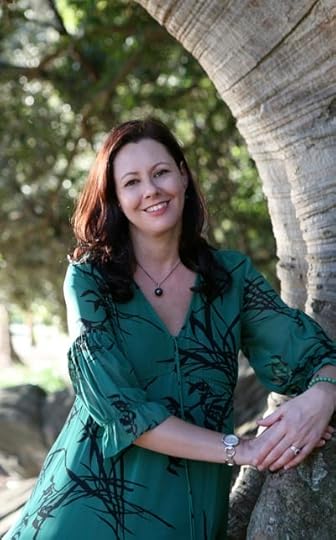
About the Author
Kate Forsyth wrote her first novel at the age of seven, and is now the internationally bestselling & award-winning author of thirty books, ranging from picture books to poetry to novels for both adults and children. She was recently voted one of Australia’s Favourite 20 Novelists, and has been called ‘one of the finest writers of this generation. She is also an accredited master storyteller with the Australian Guild of Storytellers, and has told stories to both children and adults all over the world.
Her most recent book for adults is a historical novel called ‘The Wild Girl’, which tells the true, untold love story of Wilhelm Grimm and Dortchen Wild, the young woman who told him many of the world’s most famous fairy tales. Set during the Napoleonic Wars, ‘The Wild Girl’ is a story of love, war, heartbreak, and the redemptive power of storytelling, and was named the Most Memorable Love Story of 2013.
She is probably most famous for ‘Bitter Greens’, a retelling of the Rapunzel fairy tale interwoven with the dramatic life story of the woman who first told the tale, the 17th century French writer, Charlotte-Rose de la Force. ‘Bitter Greens’ has been called ‘the best fairy tale retelling since Angela Carter’, and has been nominated for a Norma K. Hemming Award, the Aurealis Award for Best Fantasy Fiction, and a Ditmar Award.
Her most recent book for children is ‘Grumpy Grandpa’, a charming picture book that shows people are not always what they seem.
Since ‘The Witches of Eileanan’ was named a Best First Novel of 1998 by Locus Magazine, Kate has won or been nominated for numerous awards, including a CYBIL Award in the US. She’s also the only author to win five Aurealis awards in a single year, for her Chain of Charms series – beginning with ‘The Gypsy Crown’ – which tells of the adventures of two Romany children in the time of the English Civil War. Book 5 of the series, ‘The Lightning Bolt’, was also a CBCA Notable Book.
Kate’s books have been published in 14 countries around the world, including the UK, the US, Russia, Germany, Japan, Turkey, Spain, Italy, Poland and Slovenia. She is currently undertaking a doctorate in fairytale retellings at the University of Technology, having already completed a BA in Literature and a MA in Creative Writing.
Kate is a direct descendant of Charlotte Waring, the author of the first book for children ever published in Australia, ‘A Mother’s Offering to her Children’. She lives by the sea in Sydney, Australia, with her husband, three children, and many thousands of books.
For more information please visit Kate Forsyth’s website and blog. You can also find her on Facebook, Twitter, Pinterest, and Goodreads.
Giveaway!!
I’m giving out one copy of this fantastic historical fiction book (which I absolutely LOVED and will review very soon) to ONE (1) UNITED STATES RESIDENT.
To enter:
1. Leave a comment under this post to enter.
2. One entry per person, United States residents only.
3. You have until midnight (Mountain Time) on October 9, 2014 to enter.
4. I will email a randomly selected winner. They have 24 hours to respond to the email. If I do not hear back in 24 hours, I will select a new winner.
Good luck to all who enter!!
September 26, 2014
[Guest Review by Joao Eira] City of Stairs – Robert Jackson Bennett
This review was originally posted here. Thanks so much to Joao Eira for letting me nab it for my website!
—
 About the Book
About the Book
A densely atmospheric and intrigue-filled fantasy novel of living spies, dead gods, buried histories, and a mysterious, ever-changing city-from one of America’s most acclaimed young SF writers.
Years ago, the city of Bulikov wielded the powers of the Gods to conquer the world. But after its divine protectors were mysteriously killed, the conqueror has become the conquered; the city’s proud history has been erased and censored, progress has left it behind, and it is just another colonial outpost of the world’s new geopolitical power. Into this musty, backward city steps Shara Divani. Officially, the quiet mousy woman is just another lowly diplomat sent by Bulikov’s oppressors. Unofficially, Shara is one of her country’s most accomplished spymasters-dispatched to investigate the brutal murder of a seemingly harmless historian. As Shara pursues the mystery through the ever-shifting physical and political geography of the city, she begins to suspect that the beings who once protected Bulikov may not be as dead as they seem-and that her own abilities might be touched by the divine as well.
464 pages (paperback)
Published on September 9, 2014
Published by Broadway Books
Author’s webpage
Review originally posted here
—
It is always a wonderful experience when you begin reading a book that you have not heard about before but where the concept intrigues you enough for you to plunge right in, hoping your bet will pay off. City of Stairs by Robert Jackson Bennett was such an experience for me and boy, did it pay off.
If there is a trope that pulls me right into a book it’s the one of a fantasy world where the gods are dead and have left their mark on the world’s history and culture. In the city of Bulikov, which once was the main city from which the gods ruled their lands, the mere mention of the continent’s long history is strictly forbidden after the once slaves Saypuri rose up and defeated the gods with a mysterious weapon built by a mysterious man.
While the Continentals, the ones who were blessed with the gods’ favor, may hardly think about their history, the Saypuri are not bound by such rule. It is with this that the story starts, when Shara Divani arrives in Bulikov to uncover the murderer of her dear teacher Panguy, the world’s foremost expert on Continental history and legacy. In it’s heart, City of Stairs is a mystery novel, but one where the mystery is interwoven with excellent world-building, bone-crushing action and political intrigue that is far more interesting that it has any right to be.
Shara is the perfect character to thrust into the story as she not only is a wicked smart person, having entered Saypuri’s best school early and graduating with the highest marks, but she complements that with an extensive knowledge of Continental history, and with the vast experience in politics and stratagems that spy operatives regularly find themselves in. It also helps that she has partnered herself with a northern giant named Sigrud who provides the muscle, and a very interesting side story that promises to blossom in the following books.
As Shara discovers what Panguy was working on in Bulikov, work that was much reviled by Bulikov’s citizens, who saw it as an affront that a Saypuri had access to their most precious treasures while they had not, and comes closer to finding out who murdered him and why, she sees with her own eyes that history is written with a faulty pen and what was once truth could be swept away as mere fairytale by a new discovery.
Touching on themes of colonialism, where the once slave masters are overturned by their slaves who now seek to extinguish the Continent’s heritage, while at the same time bringing with them various technological advances, and the value or disvalue of clinging to tradition, in City of Stairs Bennett manages to make his readers juggle with thinking on serious moral issues as well as be excited for one more page-turn to see what happens next in the story. He manages to keep the reader interested in the story’s events, is able to maintain a sense of urgency and mystery that I find to be necessary for those pages to turn themselves quickly, and assembles a cast of characters that are well drawn out and memorable by themselves.
The only pet peeve I had with the book, and it is in no way harmful to the story, is that there is never any explanation about how it is possible for the Saypuri to have gotten to the level of technological progress where cars and somewhat modern medicine is possible. It is hard to imagine a slave population with that kind of technological level, and the Continental population wouldn’t have any need for it since the gods provided much more than any kind of technology could ever offer.
I will find it criminal if this book doesn’t do well in the market when it launches this September, and I will definitely keep tabs on the next book of this series, which the ending promises will be just as exciting and intriguing as the first one.
4.5/5 stars
—
Huge thanks to Joao for letting me nab this review. Check out his fantastic blog for more reviews like this one.
July 30, 2014
Doomsday Book – Connie Willis
 About the Book
About the Book
In the year 2054, students research the past by living in it. So when Kivrin Engle, a history student at Oxford, enters Brasenose College’s time machine for transport back to 1320s England, no one anticipates any problems.
But her two-week project takes a frightening turn. A mutant virus has been spreading through Oxford, and Kivrin arrives in the past delirious with fever. She is found and taken to a manor house, and when she recovers, she can no longer locate the time machine rendezvous point.
As Kivrin struggles to adjust to a past that’s not quite what she expected, a past where the Black Death is beginning to ravage a mystified, terrified population. With the only people who know where she’s gone seriously ill themselves, will Kivrin ever find her way back to the future? Or has she become a permanent exile in a deadly time?
578 pages (paperback)
Published in 1992
—
Doomsday Book is my first Connie Willis novel and it certainly is an ambitious work. There are a lot of pages here, and lot of very heavy content on those pages. It was doubly adventurous of me because I really don’t like time travel that much, and this entire novel is based on it.
Doomsday Book was written before the age of cell phones, and much of our modern technology. This was published in 1992, and you can kind of tell that much of our technology just isn’t conceptualized. Some of the futuristic parts of the novel are kind of clunky. That’s not the author’s fault, but readers will inevitably be able to tell that this was written before the turn of the century.
Secondly, the future/past alternating portions of the novel are rather unbalanced in some respects. For example, it was very hard for me to sympathize and care about many of the characters in the future portion of the novel, as they seemed shockingly uncertain and malleable in the face of what is happening, and that sort of thing crawled under my skin.
Kivrin truly is the star of this novel. Her journey back in time is absolutely fascinating, and those portions of the novel absolutely glowed. She was an educated, self-reliant woman who was absolutely unprepared for much of what she ran across. Willis way of merging future details and nuances (I don’t know what else to say without giving key plot points away) with Kivrin’s journey into the past was nothing short of astounding.
This is the kind of novel I can read again and again and learn something new each time.
Which goes to say that the amount of research Willis did before writing this novel is staggering. I learned more while reading this book than I ever expected, and I never felt like it was infodumpy or textbookish. So much of the information is given to readers through Kivrin’s prepared-but-unprepared perspective on the journey she has undertaken. Furthermore, key plot points are historically relevant, like the black plague, and Willis does absolutely nothing to make her novel prettier than the time period warrants. The 1300’s was a very dirty, uneducated, period of history, and Willis doesn’t hide that at all. In fact, it is so realistic, so incredibly detailed that it felt more real than I ever expected.
When you balance that incredible reality with the conflicts that take place in the future, and how two-dimensional many of the characters are, you’ll see why I felt that this book was so unbalanced. I could have read an entire novel based in the past. The future portions, while important, felt more like they were slowing me down from enjoying the real meat of the novel.
This novel, as I’ve said, has a lot going on, and it will take you time and concentration to read. Some of the novel goes really slow, and other parts you won’t be able to get enough of. That goes back to the whole “unbalanced” thing I’ve been referring to throughout this review. However, the plot itself, both in the past and the future, become incredibly powerful and fast moving as the novel progresses. In one storyline the fast paced plot will be almost instant. In another, it will take time for things to build up to a boil.
The ending is heart wrenching and gut churning. In general this novel will require some emotional fortitude to read. It’s weighty, and some of the scenes are very dark and incredibly uncomfortable. However, that’s part of why I loved this book so much. I don’t think discomfort is a bad thing, when reading a book. Often times that discomfort really pushes me past myself, and that’s when the word-magic really happens. The slow, tedious future points aside, I learned more about the past, and human nature while reading this work than I ever expected.
Doomsday Book has me kind of stumped. If I look at the work as a whole, and judge it purely on the style of the work, it would be three stars. It’s just too unbalanced between the absorbing, incredible past, and the rather mundane, tedious future that hasn’t stood the test of time well. If I judge it based on how much I enjoy it, I’d put it at a four star level. Despite the kind of annoying future, the past is so raw, emotional, and full of heart and knowledge that it helped me overlook the slow future.
I think this novel is one people will either love or hate. It is certainly worth reading, just to try it out. However you react to it, one thing is certain – this book will teach you a lot about yourself, about others, about trials and trauma, and about history.
3.5/5 stars
July 29, 2014
Free Agent – J.C. Nelson
 About the Book
About the Book
When it comes to crafting happily-ever-afters, the Agency is the best in the land of Kingdom. The Fairy Godfather Grimm can solve any problem—from eliminating imps to finding prince charming—as long as you can pay the price…
Working for Grimm isn’t Marissa Locks’s dream job. But when your parents trade you to a Fairy Godfather for a miracle, you don’t have many career options. To pay off her parents’ debt and earn her freedom, Marissa must do whatever Grimm asks, no matter what fairy-tale fiasco she’s called on to deal with.
Setting up a second-rate princess with a first-class prince is just another day at the office. But when the matchmaking goes wrong, Marissa and Grimm find themselves in a bigger magical muddle than ever before. Not only has the prince gone missing, but the Fae are gearing up to attack Kingdom, and a new Fairy Godmother is sniffing around Grimm’s turf, threatening Marissa with the one thing she can’t resist: her heart’s wishes.
Now Marissa will have to take on Fairies, Fae, dragons, and princesses to save the realm—or give up any hope of ever getting her happy ending…
304 pages (paperback)
Published on July 29, 2014
Published by Ace
Author’s webpage
This book was sent for me to review by the publisher.
—
Recently I’ve had a soft spot for urban fantasy, probably because I’ve had so many weighty things on my mind that urban fantasy has turned into a lighter place for my mind to wander. I’ve needed it. This book appealed to me for that reason, and also because I really do tend to enjoy twists on fairy tales, and this certainly is one.
In a lot of ways Free Agent is what you’d expect. There is the tough protagonist (Marissa) with a mysterious past who isn’t afraid to kick ass and take names. She carries weapons, and knows how to flirt and use her sexual appeal to her advantage. She also suddenly finds herself in the middle of something that she doesn’t understand, barely able to tread water. She lets her sarcasm fly, and seems to effortlessly float through the lightning fast plot without any mental fallback or moments of oh-my-god-I-am-so-overwhelmed that most humans would feel. Honesty, that’s part of the reason why I read urban fantasy, though. Sometimes it is nice to read about strong characters that don’t get beaten down by life, no matter how chaotic and horrible life becomes.
Free Agent has a lot of heart. It is obvious that the author had a lot of fun while writing it. The twist on our world, on fairy tales, on society in general is great fodder for some fantastic escapism. The twist on just who, and what, the fairy godmothers (and godfathers) are is fantastic. The world has layers and dividing lines, and gratefully Nelson isn’t afraid to address class issues. There are the poor, the downtrodden, and those who have been given it all, and our protagonist Marissa has to navigate all of those social classes effortlessly. It grates on her, and it has made her jaded and tough. Add to that her slavery to Grimm, and you have an interesting and slightly complex world that addresses many issues that aren’t addressed in urban fantasy.
It’s very unique, and it can be pretty thought provoking, which I honestly didn’t expect.
The plot is fast paced, and when you understand just how complex the world is that Nelson has created, you’ll soon discover that maybe things should have been slowed down a little. The magic system, for example, never really stopped confusing me. I never did figure out what makes some people “princes” and why it was so important for them to marry “princesses.” There are charms, and spells, and magic mirrors, and yes, it is all very charming, but I was never really given any explanations as to how or why any of this works. I’m not expecting anything scientific, but it felt very unexplored, and that made it feel two-dimensional and, at times, unbelievable.
The book itself felt very unbalanced, and the previous paragraph touches on why. There is a lot of potential for some fantastic depth, a world that has the ability to really sucker-punch readers and delivers something absolutely new and unusual. The problem is, things moved so quickly I never really learned the hows, or whys, behind so many aspects of the world. I enjoy fast paced novels, but this one could have benefitted by being slowed down, and some of the moments savored so the relationships between characters, the rational behind actions, and the world itself felt more real, and grounded.
This obviously impacted my overall enjoyment of the novel immensely. The relationships, along with everything else, didn’t feel as fleshed out as I prefer. The secondary characters breezed in and out of the novel at important points, they said witty things and made me laugh, but they didn’t really feel overly memorable. The romance lacked a tension that I wanted. A lot of the characters acted in ways that were so stereotypical they were unbelievable – mostly the princes who acted like they deserved everything because they were a prince. That’s fine, and realistic to their status, but when I didn’t really understand the what/why behind their status, their actions lacked believability. And that’s the case with many characters in the novel.
(Moment of honesty: I almost feel like re-reading the novel to see if I missed some key information along the way. I must have, because I’m rarely this lost – and that certainly isn’t the author’s fault. If I do end up re-reading it, I will re-review it. That’s only fair.)
Basically, Free Agent is a lot of fun, and I think the series will probably improve as it continues. The author has obvious talent, and Nelson’s excitement really is infectious. I absolutely adored the author’s twist on a fairy tale world. Not everything is as wonderful as it might seem. Nelson bravely addressed social class issues, and her characters are easy to love. That being said, I just wasn’t sold. There’s a world of difference between an enjoyable story, and an enjoyable story that I believe and care about. I think Nelson will bridge that gap in future novels.
3/5 stars
July 28, 2014
Libriomancer – Jim C. Hines
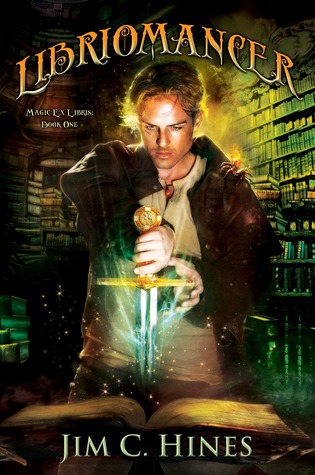 About the Book
About the Book
Isaac Vainio is a Libriomancer, a member of the secret organization founded five centuries ago by Johannes Gutenberg. Libriomancers are gifted with the ability to magically reach into books and draw forth objects. When Isaac is attacked by vampires that leaked from the pages of books into our world, he barely manages to escape. To his horror he discovers that vampires have been attacking other magic-users as well, and Gutenberg has been kidnapped.
With the help of a motorcycle-riding dryad who packs a pair of oak cudgels, Isaac finds himself hunting the unknown dark power that has been manipulating humans and vampires alike. And his search will uncover dangerous secrets about Libriomancy, Gutenberg, and the history of magic.
308 pages (hardcover)
Published on August 7, 2012
Published by DAW
Author’s webpage
—
I finished this book in about a day, give or take a few hours. I’ve been meaning to read it for a long time, and when I got the second book in the series in the mail recently, I realized it was time. Libriomancer has been on my radar since it was published., Getting book two in the mail was just the push I needed to move this series to the top of Mount TBR.
I’m glad I did. Libriomancer is a hell of a lot of fun, with some innovative ideas that really thrilled me.
The basic plot, at its bare roots, is nothing really incredibly new. There is a secret organization policing magic. No human knows about it, so secrecy is a must. The world is rife with paranormal creatures and people with magic abilities. Abuses happen, people struggle. Nothing really new there. The protagonist, Isaac, and his kind-of-sort-of sidekick (who really holds her own and is absolutely delightful) Lena are rather unsuspecting people with their own shadowed histories thrust into the middle of a situation they don’t understand. There is drama and danger and plenty of suspenseful moments.
All of that is fun, but nothing really new. What is it that pushes this novel so incredibly delightful?
It’s a rare treat to read a book written by an author who knows how to balance the unsurprising qualities of a book with plenty of surprising qualities. No, the plot isn’t really new, but everything else is. The magical underworld, the paranormal creatures, the magic system itself, the personality traits and qualities in the characters are all fantastically real, and absolutely unique.
Libriomancy is something that will probably make bookworms like myself foam at the mouth with glee. Seriously, the ability to reach into a book and pull out some weapon/artifact/person is absolutely amazing. Hines showed me the power of books in a way I’d never really seen before, and it was delightful. Furthermore, Isaac’s love of SciFi, and his use of those books for power, knowledge, and weapons warmed this nerdy bookworm’s heart. This doesn’t just impact weapons, but the world itself. For example, Hines refers to many different strains of vampires, some of which were born from the Sookie Stackhouse books, others from Twilight, some from Anne Rice’s books and so on. Nearly everything paranormal in this world has some literary influence, and it was really powerful for me to read about. Books weren’t nerdy, geeky things anymore. Hines made books power, and I love him for it.
Isaac is a character that I really grew to respect, not the least of which is because he seemed to defy a lot of urban fantasy tropes where the protagonist is super strong despite all the stuff he/she goes through. Isaac struggles, and his struggles become more and more apparent as the book progresses, until the end where he basically has a very tenuous hold on reality. This made him a much more realistic and sympathetic character. Furthermore, things with Lena (who is a perfect kick-ass heroine with her own realistic inner trauma) don’t work out as expected. I respected all of this immensely, the inner angst is balanced by real world emotions and dilemmas that felt well, real. I don’t see that enough in urban fantasy and it made this book, and the characters, easier to care about.
Libriomancer is a really fast read. Things take off and move at lightning speed. There really isn’t ever a dull moment, and Hines does a fantastic job at showing just what the characters are capable of, and all the secret layers of his world without really infodumping, or slowing the plot down with repetition of fundamental points. Secondary characters come and go, but by and large this is a really focused novel on a few main individuals, and some specific points of the world.
Some readers might find that the narrow focus of this novel keeps the world from feeling as vibrant and well realized – broad – as they want it to feel. I, on the other hand, found that Hines specific focus on certain people and points of the world, made the novel feel more tight and streamlined than I really expected it to. This is a short novel, and the author really uses all of his words and developments carefully, streamlining everything to a really focused endpoint without rambling asides or forays into parts of the world that don’t really make an impact on the plot. Everything in this novel matters. While I look forward to further world building and broadening the scope of things, I don’t really feel like that broad feel was essential in this first novel.
As I said above, this novel contains a delicious balance between the expected and the unexpected. The plot is a little predictable, and some readers might bemoan that. However, the magic system and the characters are dynamic and unique, and are sure to enchant you. This is one of those rare books that I didn’t really read expecting to be surprised, and I ended up being surprised about all of the things I’m usually never surprised about. And that surprised me! (Hey, Sarah, why don’t you say “surprise” a few more times?)
Libriomancer was a book that absolutely enchanted me. That’s really all I can say about it. I loved this book, not the least of which is because in my perfect world I’d have Isaac’s power, and my love of reading would make me a force to be reckoned with rather than some nerd anomaly that makes people scratch their heads and look at me funny. Hines gives the power back to bookworms, and my inner geek thrilled. I instantly loved Isaac and Lena, and I love their world and look forward to seeing it expanded on, and added to in future installments of the series.
Bravo, Hines.
4/5 stars
July 25, 2014
Books I’m Eyeing
It’s been a while since I’ve had the time or energy to write up one of these posts.
Life has been pretty hectic. I went through my cancer treatment two weeks ago. It was HORRIBLE. Absolutely horrible. When I did this before, it took six weeks. This time my doctor wanted me to rush it, so they gave me two injections that basically gave me six weeks of sick in two days. Then I had to take the special pill that kills all the bad things, and that made me even more sick. It was horrible. I can’t even tell you how horrible.
The good news is, they did my scan on that Friday and they said it looks like they got it all. It wasn’t as dire as my doctor thought. I seem to have treated it before the cancer really sunk its teeth in and started growing all sorts of friends. The dose I took killed a bunch of stuff off, and quarantine was a ton of fun (/sarcasm font). While my scan looks promising, my blood tests are less so. The marker they look for that should be decreasing is actually increasing, so my doctor says there might still be thyroid tissue somewhere in my body. I’m going to be closely monitored. I have to have yearly scans – one scan a year for two years - both must come back clean – before I’m considered in remission. Added to that, I have to have clean blood work for ten years before I’m considered cancer free.
Basically I’m stuffed back in wait-and-see camp. I hate wait-and-see camp. But…. it’s better than a lot of alternatives.
Officially, I’m breathing a lot easier, despite the “wait and see what happens” plan. I’m not going to live my life wondering “what if” and waiting for the shoe to drop, so I’m shrugging my shoulders and moving on.
It’s a long road, but I’ll take it.
So… onto Books I’m Eyeing.
What books are you eyeing?
 Seeders – A.J. Colucci
Seeders – A.J. Colucci
Discovery blamed on – My Bookish Ways
About the Book
George Brookes is a brilliant but reclusive plant biologist living on a remote Canadian island. After his mysterious death, the heirs to his estate arrive on the island, including his daughter Isabelle, her teenage children, and Jules Beecher, a friend and pioneer in plant neurobiology. They will be isolated on the frigid island for two weeks, until the next supply boat arrives.
As Jules begins investigating the laboratory and scientific papers left by George, he comes to realize that his mentor may have achieved a monumental scientific breakthrough: communication between plants and humans. Within days, the island begins to have strange and violent effects on the group, especially Jules who becomes obsessed with George’s journal, the strange fungus growing on every plant and tree, and horrible secrets that lay buried in the woods. It doesn’t take long for Isabelle to realize that her father may have unleashed something sinister on the island, a malignant force that’s far more deadly than any human. As a fierce storm hits and the power goes out, she knows they’ll be lucky to make it out alive.
—
 Annihilation – Jeff VanderMeer
Annihilation – Jeff VanderMeer
Discovery blamed on: Lots of places, but most notably Nerds of a Feather
About the Book
Area X has been cut off from the rest of the continent for decades. Nature has reclaimed the last vestiges of human civilization. The first expedition returned with reports of a pristine, Edenic landscape; all the members of the second expedition committed suicide; the third expedition died in a hail of gunfire as its members turned on one another; the members of the eleventh expedition returned as shadows of their former selves, and within months of their return, all had died of aggressive cancer.
This is the twelfth expedition.
Their group is made up of four women: an anthropologist; a surveyor; a psychologist, the de facto leader; and our narrator, a biologist. Their mission is to map the terrain and collect specimens; to record all their observations, scientific and otherwise, of their surroundings and of one another; and, above all, to avoid being contaminated by Area X itself.
They arrive expecting the unexpected, and Area X delivers—they discover a massive topographic anomaly and life forms that surpass understanding—but it’s the surprises that came across the border with them, and the secrets the expedition members are keeping from one another, that change everything.
—
 Devourer of Souls – Kevin Lucia
Devourer of Souls – Kevin Lucia
Discovery blamed on: Over the Effing Rainbow
About the Book
Sophan
An ancient game of chance and Fate. One boy’s smoldering hate, another boy’s need to make things right, and a father’s ghosts of Vietnam past. These are the key players in this latest tale of revenge and reparation performed on the stage of the strange Adirondack town of Clifton Heights, NY.
The Man in Yellow
Tahawus is a small, isolated Adirondack town just north of Clifton Heights. A quiet place filled with simple people of an ardent faith, nothing much ever happens there…until the man in yellow comes calling. He knows your worst nightmares, and he can offer your fondest wish. All you need is faith…and a mouth from which to scream.
—
 Glaze – Kim Curran
Glaze – Kim Curran
Discovery blamed on: SF Signal
About the Book
Petri Quinn is counting down the days till she turns 16 and can get on GLAZE – the ultimate social network that is bringing the whole world together into one global family. But when a peaceful government protest turns into a full-blown riot with Petri shouldering the blame, she’s handed a ban. Her life is over before it’s even started.
Desperate to be a part of the hooked-up society, Petri finds an underground hacker group and gets a black market chip fitted. But this chip has a problem: it has no filter and no off switch. Petri can see everything happening on GLAZE, all the time. Including things she was never meant to see.
As her life is plunged into danger, Petri is faced with a choice. Join GLAZE… or destroy it.
—
 Barricade – Jon Wallace
Barricade – Jon Wallace
Discovery blamed on: The Speculative Scotsman
About the Book
Kenstibec was genetically engineered to build a new world, but the apocalypse forced a career change. These days he drives a taxi instead.
A fast-paced, droll and disturbing novel, BARRICADE is a savage road trip across the dystopian landscape of post- apocalypse Britain; narrated by the cold-blooded yet magnetic antihero, Kenstibec.
Kenstibec is a member of the ‘Ficial’ race, a breed of merciless super-humans. Their war on humanity has left Britain a wasteland, where Ficials hide in barricaded cities, besieged by tribes of human survivors. Originally optimised for construction, Kenstibec earns his keep as a taxi driver, running any Ficial who will pay from one surrounded city to another.
The trips are always eventful, but this will be his toughest yet. His fare is a narcissistic journalist who’s touchy about her luggage. His human guide is constantly plotting to kill him. And that’s just the start of his troubles.
On his journey he encounters ten-foot killer rats, a mutant King with a TV fixation, a drug-crazed army, and even the creator of the Ficial race. He also finds time to uncover a terrible plot to destroy his species for good – and humanity too.
—
July 23, 2014
Recommended Reading | Post Apocalyptic
This is going to be an irregular feature on my website. The idea is, I get asked for book recommendations a lot. Occasionally I will throw up a post like this with a sub genre, subject, or even a specific book. If you’re looking for something like (insert something here), then try out (insert books here). Simple, right?
So, here’s my first one. If you’re looking for something post-apocalyptic that’s actually quite good (think: The Girl with All the Gifts), then try out some of these. To be fair, I’m more or less lumping a “post-apocalyptic feel” in with actual post-apocalyptic novels. Why? Because I can. I’m sure you’ll forgive me.
 —
—
This one takes place in the near future, dealing with a global catastrophe, with dark tones that gets quite psychological. The Three is told in an incredibly unique way that really worked for me. Dark, subversive, and realistic, this isn’t post-apocalyptic, but you’ll want to read it if you’re looking for the same sort of book that explores what happens to society when things fray around the edges and rumors spread like crazy.
Who Fears Death – Nnedi Okorafor
This book did it for me on just about every level. Stunning writing, an exploration of a culture that most of us probably aren’t that familiar with. This is a book that doesn’t shy away from hard truths, or brutality, but the beauty is perfectly balanced. Okorafor takes her readers through a strange, scary, and wonderful new land, and makes us fall in love with her characters. Post-apocalyptic, brutal, and stunningly beautiful. Even if you aren’t looking for something post apocalyptic to read, you really should pick this one up. It will change you.
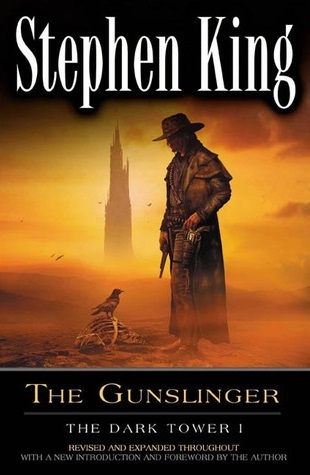 The Dark Tower series – Stephen King
The Dark Tower series – Stephen King
Is this post apocalyptic, or a parallel world, or a little of both? I don’t know, and I’ve heard so many conflicting answers that I’m pretty sure anyone’s answer would work. The interesting mix of here-and-there makes this series a nice blend of fantasy and …. something else. That being said, this definitely fits the bill. This series starts with The Gunslinger, and it is dark, and dismal enough to fit the bill. Readers won’t really understand what is going on in this first novel, but it’s hard not to be instantly drawn to the protagonist and his mysterious plight. The stunning quality of King’s writing helps. Trust me, this series will addict you almost instantly.
This is the start of a horror series, and while readers either seem to love it or hate it, I’m one of the ones who loved it. I have a soft spot for rampant viruses that totally alter society. I loved Cronin’s writing. In truth, this is two different stories in one book. One is how everything fell apart, and the other is what life is like after everything crumbles. You’ve got plenty of intense character points of view, lots of blood and gore, relationships (both strained and romantic), mysteries, and everything else you’d expect. If you’re one of the three people who haven’t read this one yet, give it a try, especially if you’re a fan of The Stand by Stephen King.
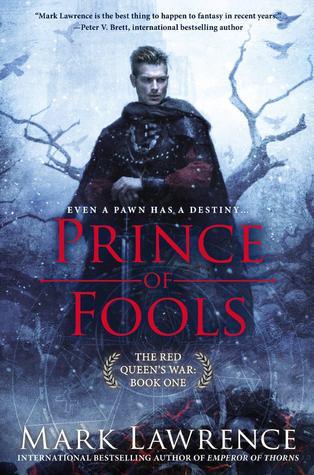 Prince of Thorns/Prince of Fools – Mark Lawrence
Prince of Thorns/Prince of Fools – Mark Lawrence
Really, if you haven’t read either of these books or series yet, than I’m not doing my job. Taking place in a far distant future with hints of a nuclear past, Lawrence is one of the darkest, most quotable writers out there right now. His writing is stunning, his characters are deliciously dark. His world is nuanced and complicated. I love antiheroes, and I love the world he’s created and envisioned. I fall into his books, and don’t surface for days and days. They are delicious.
If you’re looking for something lighter in tone, and urban fantasy is your bag, try out the Kate Daniels books. Light, fun, with writing that sucks you in and a plot that runs away with you. These novels take place in a sort of magically broken world that is real and unique enough to stay fascinating. There’s a hint of romance that builds as the series goes on, but character relationships and developments are natural. The plot can be a bit predictable, but it is a lot of fun, and the future world where tech and magic sort of overwhelm each other at odd times makes situations that wouldn’t be complex, complex. It’s great fun, and really worth reading (and that’s from someone who doesn’t really like urban fantasy).
I have only read one of these books, and I never did figure out if this is our world, in some dark future, or if this is a secondary world. I guess that’s why this book is going here. Even if it is a secondary world, it certainly felt dark and post-whatever enough to fit in this group of novels. This is an urban fantasy series, and there’s all the urban fantasy things you’d expect in here – romantic tension, a tough protagonist with a mysterious past, a fast paced plot and characters you love, and love to hate. Where this series is different is that Kane really doesn’t shy away from the darker aspects of the society she’s created. In fact, her protagonist is firmly immeshed in the drug trade. She’s a junky, and she lives in a rat trap. She’s tough because it preserves her, and most of her contacts and friends are just as dark and gritty as she is. The world itself has that fractured feel that I look for in my post-apocalyptic novels. Well worth looking into if you’re looking for that post-apocalyptic tone, uniquely dark characters, with some of that urban fantasy familiarity.
To be completely honest with you, dear reader, this is probably one of my top five favorite books I’ve read so far this year. I honestly can’t say enough good about it. This takes place in a somewhat near future where people were genetically altered to survive. You’ll have to read it to get more details, but this is one of the most powerful, thought provoking books I’ve ever read. The writing is spectacular. The story still haunts me (in the best possible way). I loved the characters. Their plight is fantastically realistic. The ending is powerful. I can’t wait to see what happens next. However, this certainly is a post-apocalyptic feeling novel. Society has broken. Life isn’t as we know it, and Saulter bravely dives into the depths. She examines just what makes us human, and just how our definitions would change after something cataclysmic happened. Do yourself a favor and read this book.
And finally…
This is a young adult novel where the world has been absolutely pummeled and the angels are taking over. Also, the angels aren’t always the good guys (which I appreciated). This, fundamentally, is the story of a teenager trying to keep her family together despite all odds. It’s well written and shockingly addictive. The world is very broken, the society is absolutely shattered, and Ee deals with some really mature topics with aplomb and poise. It’s hard not to really enjoy this novel on some level. Very well done post-apocalyptic tale of love and hope in the face of unbelievable amounts of darkness.
—
So there you go, some post-apocalyptic (feeling) novels off the top of my head. If you’re looking for your next broken-feeling-world type read, check out one of these.
July 22, 2014
The Merchant Emperor – Elizabeth Haydon
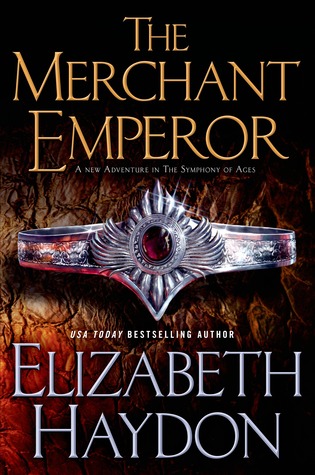 About the Book
About the Book
The war that they had feared is now upon them. Ashe and Rhapsody, leaders of the Cymrian Alliance, are gathering their allies to combat the machinations of Talquist, who will soon be crowned emperor of Sorbold. Gwydion Navarne remains by Ashe’s side. Anborn, Lord Marshal, has taken to the field. And Rhapsody has been forced into hiding to protect the life of her infant son.
The Merchant Emperor of Sorbold has unintentionally allied himself with a pair of demons and has begun targeting the dragons that remain on the Middle Continent. Talquist will stop at nothing until the Cymrians are wiped out and the entire continent and the rest of the Known World is under his rule.
Assailed by danger from all sides, surrounded by lies and intrigue, Rhapsody is left with one undeniable truth: if their forces are to prevail, she must join the war herself, wielding the Daystar Clarion, an ancient weapon whose power is nearly unparalleled. As she struggles to reconcile her duties as a mother and ruler, a danger far more devastating than Talquist is stirring beneath the surface of the land itself.
432 pages (hardcover)
Published on June 3, 2014
Published by Tor
This book was sent for me to review by the publisher.
—
The Merchant Emperor is the seventh book in the Symphony of Ages by Elizabeth Hayden. This series happens to be one of the first epic fantasy series I’ve ever read, but that was years ago. I was excited about this book, but also reluctant. It’s been a long time since I’ve visited this world, and my memory isn’t what it used to be due to numerous cancer treatments.
I saw on the page that is sent along with the books that this would be a good entry point to the series for new readers. Knowing how fantastic my memory was, I decided to give The Merchant Emperor a shot without revisiting the previous books to refresh myself first.
The good thing is that Haydon really infuses this book with plenty of backstory and character building. New readers will appreciate that. Readers like me will enjoy how it triggers memories. Readers who are more familiar with this series will probably find the history a bit redundant at times. That being said, I’m a little less certain that this book is a good entry point into the series. While Haydon does a great job filling in the gaps, I think a lot of the impact and attachment will be lost without previous books.
The Merchant Emperor is told through multiple perspectives, some readers will already know and be familiar with, others will be new. The characters are all a unique blend of individual and memorable, mixed with some tropey traits. For example, at time Rhapsody can be a bit too saccharine and good. Occasionally Achmed is too gruff to be believable. Ashe seems a little too perfect. That’s not new to anyone who is familiar with the series. The new characters are the same interesting mixture. All of them have distinct voices, and a fantastic blend of flaws and strengths, but none of them stray into that gray zone I love for characters very often.
The Merchant Emperor starts after a bunch of complex political and personal things have happened, and is obviously setting the stage for more. The title suggests that this will be a fairly political novel, and it is. Rhapsody and company have changed the political landscape over the previous six books in the series, and this seventh book is really setting up the stage for repercussions to take place. Of course there will be a backlash against all this change. It makes sense, and I admire Haydon for dealing with it so logically.
However, The Merchant Emperor does feel very much like a set up for something more. A lot is said, the stage is set, the pieces are in position but nothing really happens. It is really nice to revisit these characters, and I’m anticipating some pretty incredible happenings in the future installments in this series, but The Merchant Emperor felt very much like the middle book. It was the bridge between what happened before, and what is going to happen next.
The writing itself is wonderful, and the world is rich and woven together almost flawlessly. I enjoyed the expanding political and physical landscape. Hayden has a knack with making her setting so lush and rich that it is easy to become really absorbed in it. The world itself almost makes up for any lag in the plot. In fact, it really was the world and the magic that made me fall in love with the series in the first place, and that love was renewed when reading The Merchant Emperor.
In fact, despite all of the flaws, I truly had a lovely time revisiting this world and the characters I fell in love with years ago. Regardless of where they all fall on the epic Scale of Realistic Characters, it’s easy to love them and their world. Haydon has this way with infusing her writing with passion that infects her readers.
The Merchant Emperor was a fantastic revisit to a series I fell in love with a long time ago. However, I didn’t find myself as enchanted as I thought I would be. The characters felt less dynamic than I expected. The plot felt more like a setup for something more than a plot that could stand on its own. However, it isn’t all bad. Haydon’s writing really shows her skill. Lyrical and lush, the world is vibrant and alive, and it is truly is hard for me to be anything but hungry to find out what happens next.
3/5 stars



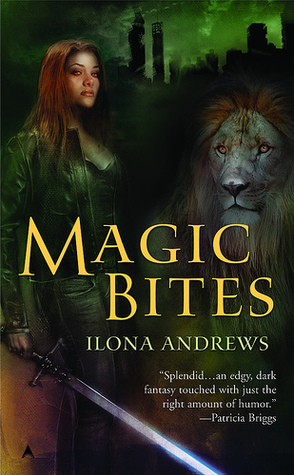
 Unholy Ghosts – Stacia Kane
Unholy Ghosts – Stacia Kane
